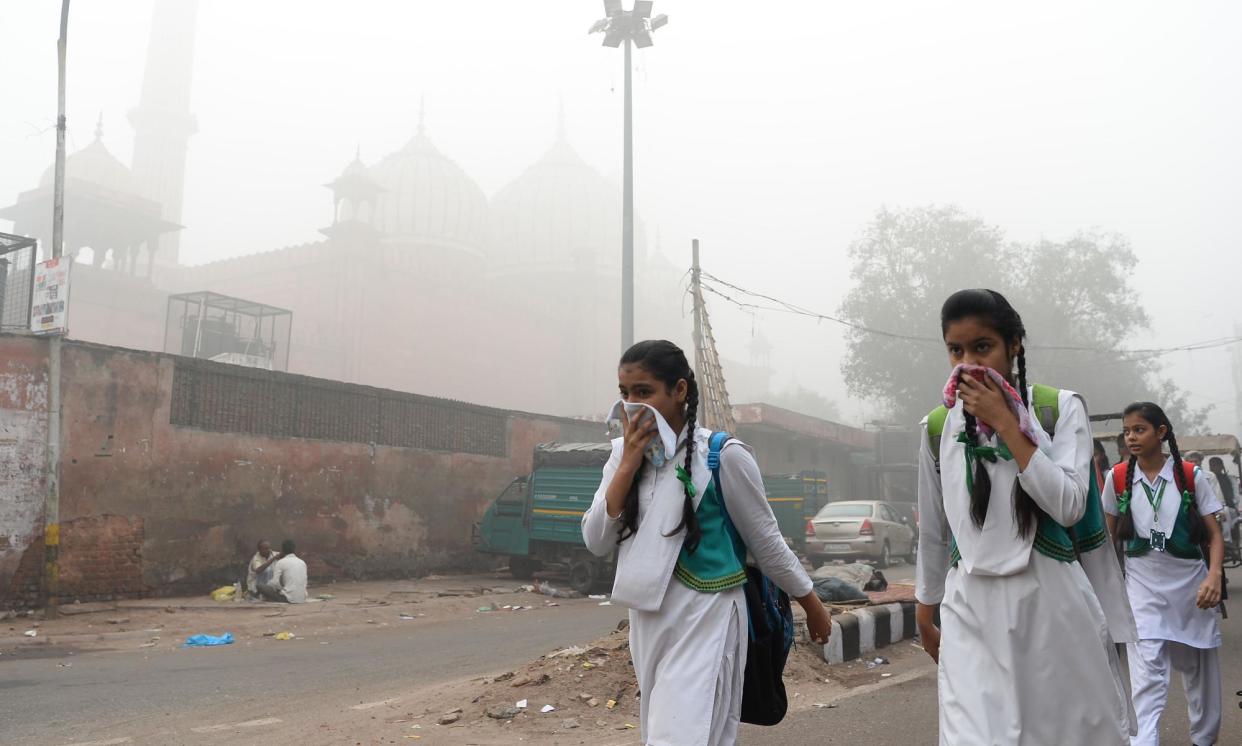Only seven countries meet WHO air quality standard, research finds

Only seven countries are meeting an international air quality standard, with deadly air pollution worsening in places due to a rebound in economic activity and the toxic impact of wildfire smoke, a new report has found.
Of 134 countries and regions surveyed in the report, only seven – Australia, Estonia, Finland, Grenada, Iceland, Mauritius and New Zealand – are meeting a World Health Organization (WHO) guideline limit for tiny airborne particles expelled by cars, trucks and industrial processes.
The vast majority of countries are failing to meet this standard for PM2.5, a type of microscopic speck of soot less than the width of a human hair that when inhaled can cause a myriad of health problems and deaths, risking serious implications for people, according to the report by IQAir, a Swiss air quality organization that draws data from more than 30,000 monitoring stations around the world.
Related: Tornadoes, shrinking ice and early syrup: how hottest winter hit the US
While the world’s air is generally much cleaner than it was in much of the past century, there are still places where the pollution levels are particularly dangerous. The most polluted country, Pakistan, has PM2.5 levels more than 14 times higher than the WHO standard, the IQAir report found, with India, Tajikistan and Burkina Faso the next most polluted countries.
But even in wealthy and fast-developing countries, progress in cutting air pollution is under threat. Canada, long considered as having some of the cleanest air in the western world, became the worst for PM2.5 last year due to record wildfires that ravaged the country, sending toxic spoke spewing across the country and into the US.
In China, meanwhile, improvements in air quality were complicated last year by a rebound in economic activity in the wake of the Covid-19 pandemic, with the report finding a 6.5% increase in PM2.5 levels.
“Unfortunately things have gone backwards,” said Glory Dolphin Hammes, North America chief executive of IQAir. “The science is pretty clear about the impacts of air pollution and yet we are so accustomed to having a background level of pollution that’s too high to be healthy. We are not making adjustments fast enough.”
Air pollution kills an estimated 7 million people a year worldwide – more than Aids and malaria combined – and this burden is most heavily felt in developing countries that rely upon particularly dirty fuels for heating, light and indoor cooking.
The most polluted urban area in the world last year was Begusarai in India, the sixth annual IQAir report found, with India home to the four most polluted cities in the world. Much of the developing world, particularly countries in Africa, lacks reliable air quality measurements, however.
The WHO lowered its guideline for “safe” PM2.5 levels in 2021 to five micrograms per cubic meter and by this measure many countries, such as those in Europe that have cleaned up their air significantly in the past 20 years, fall short.
But even this more stringent guideline may not fully capture the risk of insidious air pollution. Research released by US scientists last month found there is no safe level of PM2.5, with even the smallest exposures linked to an increase in hospitalizations for conditions such as heart disease and asthma.
Hammes said that countries should act to make their cities more walkable and less reliant upon cars, amend forestry practices to help curtail the impact of wildfire smoke and move more quickly to embrace clean energy in place of fossil fuels. “We share the atmospheric envelope with everyone else in the world and we need to make sure we are not doing things that harm those elsewhere,” she said.
Aidan Farrow, senior air quality scientist at Greenpeace International, said that better air quality monitoring is needed, too.
“In 2023 air pollution remained a global health catastrophe, IQAir’s global data set provides an important reminder of the resulting injustices and the need to implement the many solutions that exist to this problem,” he said.

 Yahoo News
Yahoo News 
